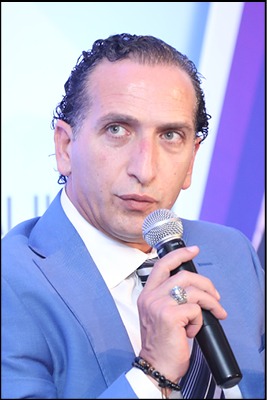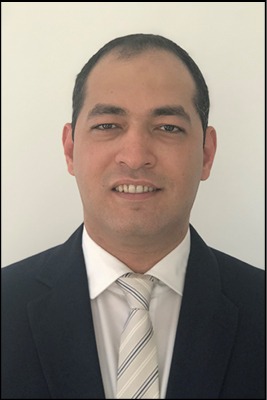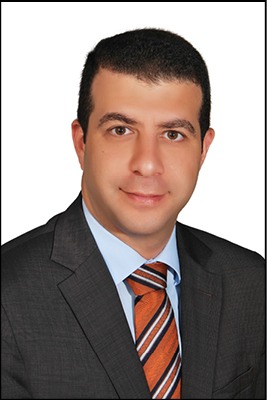That’s how panelists speaking during CPI Industry’s webinar, ‘Smart HVAC Systems’, characterised the need of the hour, in response to the current situation of lack of adequate skilled personnel, inflexible designs as well as inadequate handover and commissioning, which together have led to under-utilised smart systems in underperforming buildings, in the context of wider sustainability goals. Hannah Jo Uy has the report…
 Smart technologies are no longer a luxury – they are a necessity, said Mansour Kharoub, Associate Principal, Mechanical Engineering Services, Khatib & Alami, and Chair of CPI Industry’s webinar, ‘Smart HVAC Systems’, on July 19, adding that over the years, building professionals have warmed to the idea of installing them as essential for increasing energy efficiency and improving IAQ.
Smart technologies are no longer a luxury – they are a necessity, said Mansour Kharoub, Associate Principal, Mechanical Engineering Services, Khatib & Alami, and Chair of CPI Industry’s webinar, ‘Smart HVAC Systems’, on July 19, adding that over the years, building professionals have warmed to the idea of installing them as essential for increasing energy efficiency and improving IAQ.
Sharing numbers in support of the trend, Kharoub highlighted a 2017 study from Building Performance Institute in Europe (BPIE), which found that building automation reduced energy consumption by around 25% in households and smart technology can save an average of 23% of energy consumption in offices. “We also have IEA, which stated that digitalisation could save around 10% of total energy consumption in residential and commercial buildings by 2030,” he said.

Pamela David
On top of this, Kharoub pointed out that the global pandemic has fundamentally changed the nature of FM, driving further reliance on smart systems to ensure reliability of building operations. Pamela David, General Manager – Client Success, Netix Global seconded this. “Because of COVID-19, we can’t send technicians all over anymore,” she said. “People don’t want them inside rooms and buildings, so we have this very serious necessity of looking at the function of a building from a remote perspective. Opex is expensive and the cost of not having maintenance is disastrous for property owners.”
A necessary convergence
In view of the positive momentum smart systems have been making, Mohamed R Zachariah, Chief Consultant, Suhaimi Design – Protecooling was quick to point out that the “maximum benefit of smart technology can only be extracted when there is a convergence between smart technology and smart, trained people”.

Mohamed R Zachariah
Zachariah pointed out, however, that this is often not the case. “When we go back and inspect any building, where a full-blown BMS was designed some time back, we found that a very minimum capability of the full-blown system is utilised,” he said. “A lot of the features are bypassed and quite a lot of the semi-manual operation has been executed. Probably they would have been better off by installing lesser technology if they have extracted full benefit of it. That would have been more cost-effective for them than to spend so much on a high-functionality, intelligent full-blown BMS and not extracting the benefit of those kinds of systems.”
Weighing in, Ahmed Elkiki, Director of Technical Services, RAK hospitality, Government of Ras Al Khaimah, provided an insight into the challenges building owners and developers face in this regard. “As developers of hotels, we do our best to use the latest technology in our systems and buildings,” he said. “However, we are very frequently faced with less competent FM teams to manage the new technologies.”
In one particular instance, Elkiki said, RAK Hospitality had invested in a state-of-the-art guest room energy management system for a hotel. “It was the latest technology and, I think, it was one of a kind in the UAE,” he said. “We offered this to the hotel, and it has been operating in the hotel. The FM team is there from the beginning to the end. We did a mock-up where we left the FM team to operate it for five months before the roll out. What happened? They had no clue how to operate it.”
 Rendered useless
Rendered useless
For Elkiki, there is an urgent need to merge knowledge of IT systems and engineering. “The way FM is happening now, there is a complete separation between maintenance in terms of MEP and the IT systems, or network administration,” he said. “This cannot continue forever. This hampers the owners’ interests and assets.” Zachariah was in agreement. “My personal philosophy is that if you invest dollars in terms of control systems you have to ensure you are exacting full benefit of the intelligence of the control systems,” he said. “If you don’t intend to do it, don’t invest that much into intelligent systems, because they are rendered useless.”
The main issue stems from the lack of skilled personnel, Elkiki said. “There is no requirement for the Director of Engineering or the Chief Engineer of any hotel to even have a bachelor’s degree, let alone be an engineer and have an engineering degree,” he pointed out. “So, I think there is a lot to come in terms of competencies required in FM team, with all the technologies in place. We have brilliant consultants that design the newest technologies available, but there is no one on site that has the knowledge to operate them properly for the next 30 years of the building’s life.” Kharoub was in agreement, saying that there is a challenge in bringing FM teams up to date with the latest technology. “Sometimes, during handover of the building, you give the latest technology and a lot of aspects in the BMS and you find that after, the FM is only using it partially.”
David said that the inefficient maintenance of unskilled FM is further aggravated during COVID-19. “Building occupancy has changed radically,” she pointed out. “Office buildings are now empty, and residential buildings are occupied. That means the way the building is applied, the schedule would have to be changed. The maintenance and FM teams have to be aware of how to dynamically change the setting, see the occupancy, move the building accordingly and see if equipment is not being utilised.” This, she added, was key to predictive maintenance. Elkiki added that this is an issue that can be seen in the region’s construction industry and that there is a lot of wisdom to be gained from other countries’ efforts to regulate MEP technicians, installers and operators through a more stringent certification process.
A need for flexible systems

Azmi Aboul-Hoda
Providing another angle to the discussion, Azmi Aboul-Hoda, Managing Director, EMergy, dialled in on potential challenges the Operations and Maintenance (O&M) teams are also faced with. To meet the immense challenge of ensuring optimum IAQ, which has been placed in greater focus over the past few months, Aboul-Hoda said flexibility is key. “It starts with the flexibility of the system,” he said. “Whether or not the O&M personnel are competent is one matter, but an important issue is also whether they are relying on flexible systems. Are they exposed to systems that can’t be altered, depending on the operating sequences? The building behaviour is also an issue. Can existing systems adapt to these changes?”
For Aboul-Hoda, it is equally important that stakeholders support the O&M teams with tools to be able to manoeuvre around the current situation in terms of flexibility. “This is also important in terms of visibility,” he said. “Are they really able to monitor the building operation closely, gain data from these operation and change the systems being implemented in terms of controls, sequences and other factors?” This, he said, comes down to the design. “When designing a system, we need to deal with occupants as individuals, not as bulk,” he said. “Each occupant has his or her unique requirements; we need to make sure the systems are able really to deliver, so whenever we need to design or upgrade the system, keeping this in mind we can go very far.”
For Zachariah, improper handover is also an aggravating factor, and a cause for a lot of the issues that emerge with operation of smart systems “Automatic control system does not automatically become an automatic system,” he emphasised. “It has to be manually and properly set, so that we are able to extract the full functionality; and then proper commissioning has to happen.” However, Zachariah said that in a typical project, the physical installation of components, controllers and field device sensors are completed, and some level of functionality is accomplished, and that is how the project is handed over to the FM team, without full-blown training in the overall system and its operations. “Then, it goes from bad to worse,” he said. “So, full functionality has to be tested in terms of proper functional performance. There has to be testing for all different modes of operation to ensure that the full range of operability functionality is extracted. It might need some different testing in different seasons, as well, then proper handover to FM team with appropriate training on top of that.”
For David, another challenge is lack of re-commissioning in most buildings following occupancy. “Building commissioning after occupancy doesn’t exist here, because the rules and applications change,” she said. “One year after handover, the set points and other parameters are probably not perfectly tuned anymore for these buildings.” David said that there is a wide array of software solutions available that will allow for continuous re-commissioning. These systems, she explained, are intelligent enough to have built-in algorithms that will notice if a temperature set-point is maintained or changed regularly in a certain a space, memorise these actions, predict the schedule and make automatic changes in the building.
Making informed decisions
For David, in addition to the technical contributions of smart systems, it is important to understand the wealth of possibilities the information they provide has to offer. “The general underlying thought is that when it comes to HVAC controllers and integrations, the intelligence of it needs to be fast, responsive, error-free, resilient and quick,” she said. “We know this, but now the need is moving towards information sharing, the connectivity part of it, where we seem to want information fast and respond to it. We need systems that can access data, from HVAC or other systems, with logic and algorithms that will effectively bring a solution for humankind. We need systems that can communicate over multiple protocols, properly integrate all of this data dynamically, and give it visually to people, who can take calculated decisions that can either bring down their opex or meet other requirements.”
David said this information is absolutely crucial, as the world is continuously moving towards the cloud. “Data crunching is possible through smart platforms, and information can be shared either to a technician, a tenant, an engineer or to a CFO, with right kind of reports and work orders,” she said. “But you still need intelligent people looking at your buildings regularly. A machine can’t do everything. You need energy engineers and operators looking at the building constantly. There are possible ways to do it – it’s just about awareness and people need to know the technology is available.”
In line with this, David suggested that while training FM teams is important, the fleeting nature of contracts and companies, leading to high turnover, could mean that it is better to educate the building and property owners on the importance of making sure smart systems are being utilised well. Elkiki also highlighted the important role of building owners, pointing out that it is also important for developers to understand the value of investing in not only the right equipment but also in the right people. “In the cycle of the building, your design and construction costs together are incomparable to the cost of operating the building for 30 years,” he said. “Whatever you are going to spend on design is going to be one per cent of what you are going to spend over 30 years in the lifetime of the building. And whatever you are going to spend on the structure will be 30% of what you are going to spend over the next 30 years over the lifecycle of the building, but you will generate savings that can allow you to reduce the highest cost of the building, which is the operating cost.”
Aboul-Hoda was in agreement, pointing out that stakeholders need to think of not only the type of data that is needed but also how to reflect on the data available in order to improve the operation of a building. “It is actually a holistic approach towards smart,” he said. “This is what I need to emphasise on – technologies are advanced and the HVAC industry is also advanced. We need to bring both together, and here is when we need expertise, studies and efforts to make sure of harmony within these systems. Smart, in terms of technologies implemented, is one thing; understanding the science and physics behind the HVAC is another to ensure that it’s not only about spending money for the sake of spending money. We need to spend money in the right direction by understanding the HVAC.”
There are immense challenges to overcome, Aboul-Hoda admitted. However, he said, despite the challenges, HVAC experts should not shirk from their duties. “It’s already there in all the requirements in contracts in construction to have proper training, commissioning and proper handing over of a proper set of systems manual,” he said. “We need to follow what is there and try our best to achieve this.” Furthermore, Aboul-Hoda said, it is the responsibility of industry experts to restore the confidence of occupants in the built-environment. “After Covid-19, the pandemic uncovered a fatal situation within our buildings, where we stay most of our time,” he said. “We need to restore confidence to ensure these buildings are maintained and operated properly to handle this pandemic and any future ones that may come up.”
Copyright © 2006-2025 - CPI Industry. All rights reserved.